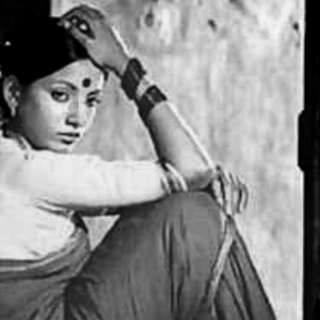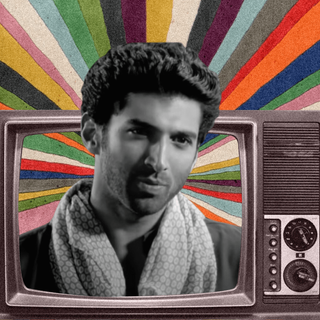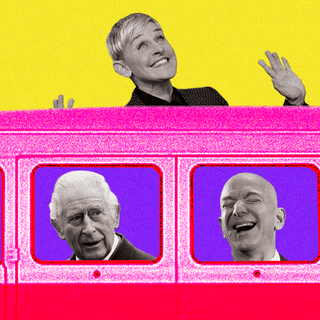
The Harry Potter Reunion Missed an Opportunity To Reckon With Its Legacy
The special raises the question of what reunions are for, if they don’t try to be introspective of the past.

A real life ghost haunts the much publicized Harry Potter reunion special. Released on 1st January, Harry Potter 20th Anniversary: Return to Hogwarts has one very notable, very prominent absence: that of Joanne K. Rowling.
The author of the beloved book series is currently mired in controversy for her views on gender, particularly in light of some reprehensible, transphobic statements she made and obstinately stuck to, despite criticism. Although her representatives maintain that this is not the reason she declined to appear, the reunion special rings hollow for not addressing the increasingly tainted legacy of the world that provided a magical escapist fantasy for millions.
The special itself begins with a heavily produced actors’ entrance — carefully crafted for maximum nostalgia value. Hedwig’s and Hogwarts’ theme music accompanying an elaborate return to the film sets, accomplish this in the first ten minutes, leaving much to be desired during the rest of the 1-hour-45-minute runtime. There isn’t much here that ardent fans don’t already know. Sure, watching actors meet and reminisce fondly is nice — but viewers who are increasingly confused and heartbroken over Harry Potter‘s place in 2022 were again left without any answers to many pressing questions.
For one, how do we reconcile our love for this story, its characters, and its themes while their creator actively spreads bigotry and causes harm to real communities? Is it possible to stay with the series while distancing Rowling from it? Does Harry Potter no longer have one authoritative author?
Related on The Swaddle:
The Faux Progressivism of J.K. Rowling
The cast, crew, and the production that breathed life into this universe had an opportunity to revisit Harry Potter critically and engage in an earnest conversation with fans looking for clarity on these urgent questions. Instead, the special is a contrived, forcefully cheery, and positive throwback to the makings of the Harry Potter films. Not one of the actors involved dared to address the elephant in the room. Rather, there is repeated emphasis on how much the story and the films meant to people — as if by doing so, the series can recapture its once spotless legacy as actually meaningful, despite growing disillusionment and disappointment.
By refusing to even acknowledge the legacy of Harry Potter with anything other than pure nostalgia and summing it up as a trite “triumph of good over evil” story, the entire studio is complicit in deliberately sidestepping the difficult questions and profiting off of hurt and harm. It also prompts the question of what purpose reunion specials serve. Are they nostalgia-driven “cash grabs,” or are they genuine and loving returns to a story loved by generations?
Judging by the recent spate, it appears that they’re more along the lines of the former. Earlier in 2021, the wildly popular sitcom Friends also celebrated a reunion special. Much like the Harry Potter special, the cast got together after years and marveled at all the time gone by. An overarching theme of both reunions is that of youth. With Friends, it was about young adult actors holding each other through their big career breaks; with Harry Potter, it was about children growing up together and helping one another deal with having parts of their identities fused with their characters.
While these conversations by themselves are illuminating, neither special probes into them lingers on the questions they throw up, for fear of venturing into darker territory. Both specials know that spending too much time in the murky territories of youthful folly will bring up other uncomfortable questions too. In the Harry Potter special, we learn that Emma Watson and Rupert Grint considered leaving the franchise at one point.
But this means following the breadcrumbs (or spiders) to ask why, and whether the studio did enough to protect its child stars from harm and the travails of early fame. And with that knowledge, the special immediately cuts to playful, wholesome archival footage of the cast behind the scenes, priming viewers to wipe a tear along with the actors as they look back in time but without really dwelling on what that means. There is no room for vulnerability if it doesn’t jibe with an overall Disney-esque positive vibe.
Related on The Swaddle:
The Buzz Cut: Reunion Shows Are Rarely Satisfying. So Why Do We Keep Asking For Them?
What studios don’t allow fans, in the process, is any meaningful engagement with their fandom. Looking back in time also involves dredging up the unsavory bits — but the more they are deliberately unaddressed, the greater their presence looms over the whole experience.
No matter how much Hollywood tries, it cannot elude the fact that no work of art can remain suspended in time, untouched by larger cultural shifts taking place around it. And just because it tries to pretend that these works of art still mean as much to people as they did at the start, it doesn’t automatically mean that they do. Public memory, if nothing else, will hold these stories to account: but without a two-way dialogue, closure or comfort are hard to come by.
Friends had a problematic pattern of homophobic, fatphobic, and transphobic humor that don’t stand up to later decades’ scrutiny — and it knew that. Harry Potter‘s world also threw up some less than kosher elements when viewed under a critical gaze following Rowling’s bigoted views. But neither of the reunion specials even hinted at any of these aspects. They choose to push the narrative that reunions are meant to be wholesome and unproblematic, baiting fans with seemingly introspective conversations that actually turn out to be smokescreens.
Ultimately, we leave the Harry Potter reunion with what should have been bittersweetness, but is only just bitterness. As a fan for whom the entire series has meant a lot, it was difficult and cringeworthy to watch people trip over themselves in carefully acknowledging JKR as the one who gave them everything, without engaging with the legacy she is actively tarnishing.
For all the wonderful quotes we are reintroduced to with and the tearjerking “always” ending, the fandom is left with the opposite of what they’d so long clung to: the reunion does, in fact, dwell on dreams, and forgets to live. For living means thinking, feeling, engaging, and having the courage to say what is difficult to say.
Rohitha Naraharisetty is a Senior Associate Editor at The Swaddle. She writes about the intersection of gender, caste, social movements, and pop culture. She can be found on Instagram at @rohitha_97 or on Twitter at @romimacaronii.
Related


Can We Move On: From the Trope of the ‘Brooding Hero’ Whose Indifference Makes Him Attractive
